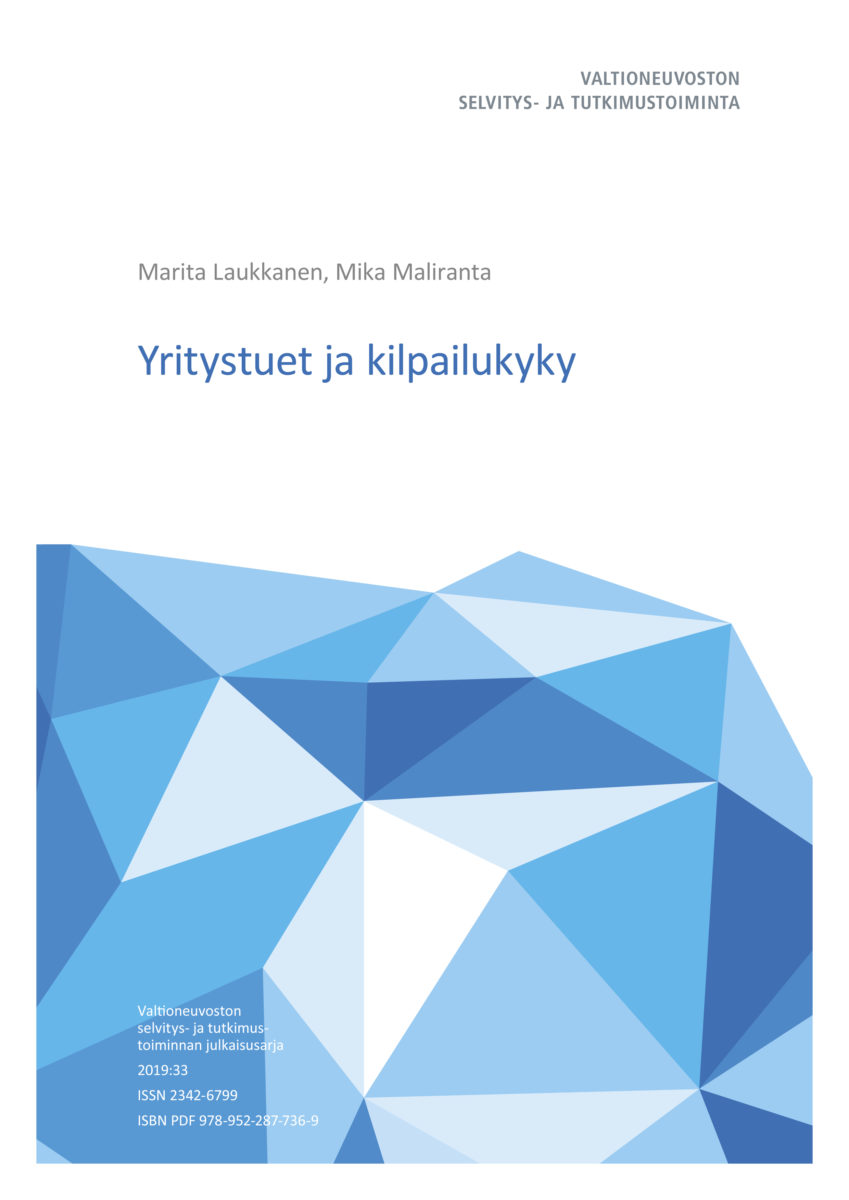
We evaluate the competitiveness effects of business subsidies in the light of economic theory, previous empirical research, and new empirical analysis. Business subsidies should be considered broadly in order to comprehensively assess their overall economic effects. When competitiveness is addressed, it is important to make a distinction between short-run price and cost competitiveness and long-run competitiveness. The emphasis of business subsidies should be on correcting market failures. Any assessment of business subsidies should take into account both their direct effects on the recipient firms and industries, and their indirect effects on other companies and industries, as indirect effects can reinforce or cancel out the potential positive effects of the subsidies. We review recent economic studies that has examined the indirect effects of business subsidies theoretically and empirically. We examine in more detail innovation subsidies, other subsidies, compensation for the indirect costs of emissions trading, and energy tax refunds to manufacturing firms, and assess their effects on competitiveness. The emphasis of innovation, r&d and technology adoption subsidies has been on young firms, which is justified by economic theory. However, innovation subsidies have been declining, energy subsidies in turn increasing. The emission trading compensation and energy tax refunds have mainly benefited large companies in the paper industry, chemical industry and basic metals industries.
Publications of the Government’s analysis, assessment and research activities
2019:33.